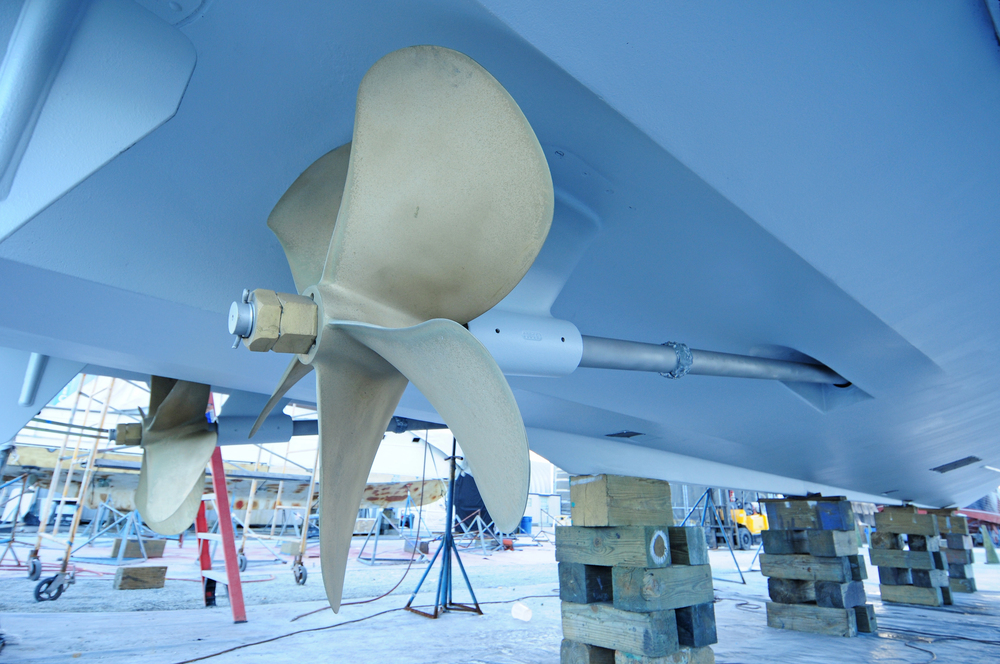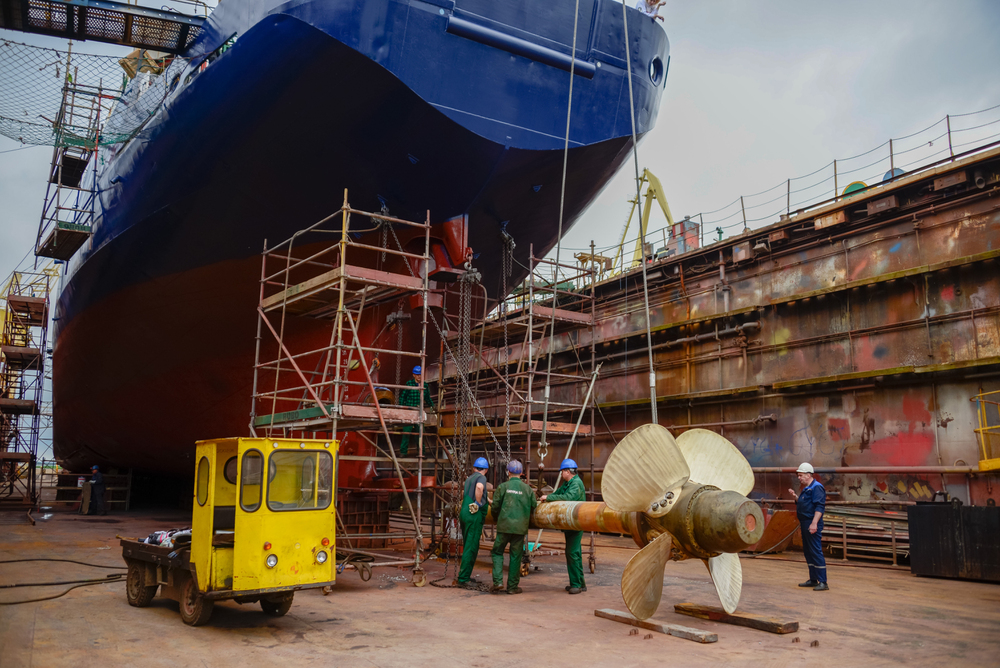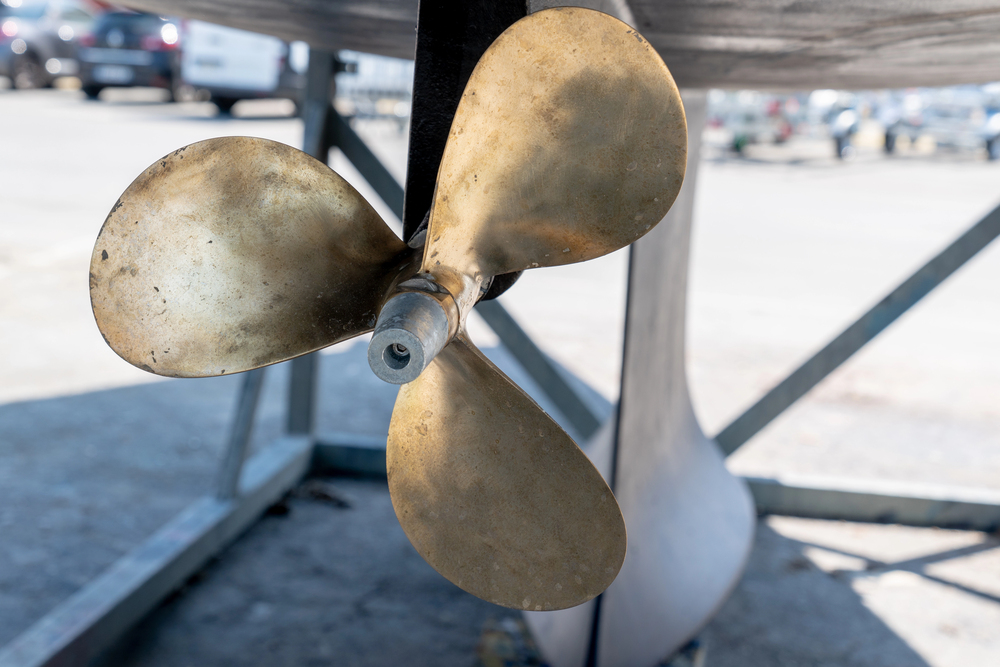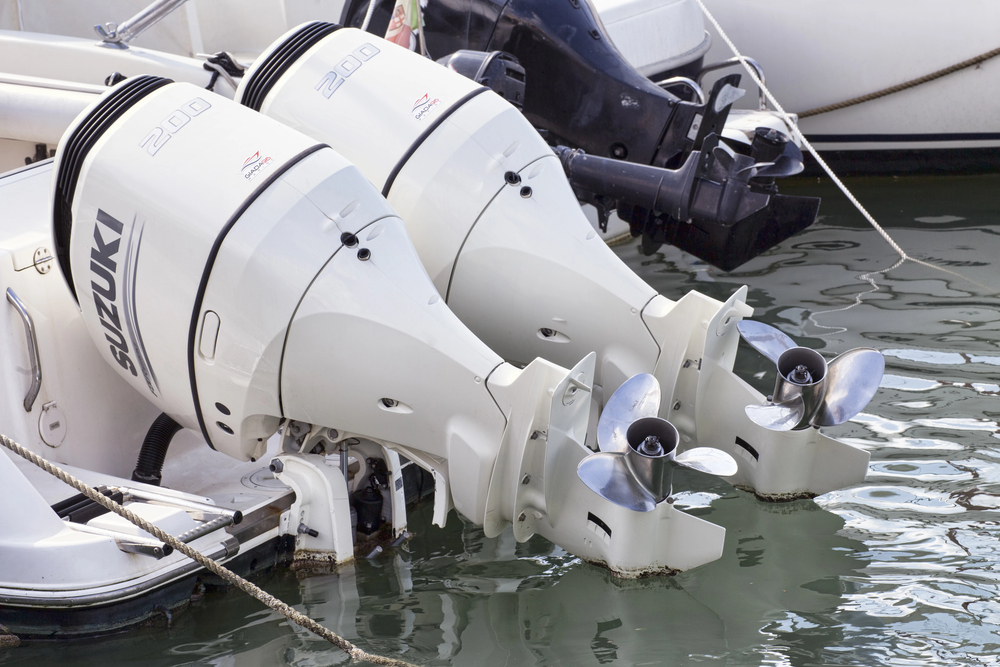Impact on performance often starts with the boat’s propeller, making its condition vital for smooth operation on the water. A damaged propeller causes vibrations, decreases speed, and wastes fuel, directly affecting your boating experience and safety on the Florida waterways. Property owners consistently face decisions about maintaining their marine assets, and the choice between repairing a boat propeller or opting for a full replacement presents a common dilemma.
Understanding the Basics of Boat Propeller Damage
A boat propeller generates thrust, pushing water backward to move the vessel forward, making it a critical component for propulsion and steering control. When a propeller sustains damage, its ability to efficiently convert engine power into movement diminishes, causing significant performance issues. Damage often results from striking underwater objects, encountering debris, or even operating in shallow waters, leading to bent blades, nicks, or even cracks.
Understanding the fundamental mechanics of how a propeller functions allows owners to quickly identify when something is wrong and address the issue before it worsens. Proper knowledge helps maintain optimal vessel performance and prevents further mechanical strain.
Common Causes of Boat Propeller Wear and Tear
Several factors commonly contribute to the wear and tear a boat propeller experiences over time, diminishing its efficiency and requiring attention. These environmental and operational stressors directly impact the propeller’s integrity, gradually reducing its ability to perform its essential function. Here are typical occurrences:
- Striking objects: Impact with submerged logs, rocks, or other debris frequently causes immediate and visible damage to propeller blades. These accidental collisions bend, chip, or even fracture the metal, compromising the propeller’s balance and overall structure.
- Corrosion: Exposure to saltwater or even freshwater for extended periods causes metal corrosion on propeller surfaces. This chemical reaction weakens the material, creates pits, and reduces the blade’s smooth hydrodynamic shape, affecting thrust and efficiency.
- Cavitation: This phenomenon occurs when low-pressure bubbles form and collapse rapidly on the propeller surface, eroding the material over time. Cavitation often results from incorrect propeller selection, overloading the boat, or improper trim angles, leading to surface pitting and blade erosion.
- Fouling: Marine growth such as barnacles, algae, or other aquatic organisms attach to the propeller blades, increasing drag and reducing efficiency. This biological buildup forces the engine to work harder, consumes more fuel, and places additional strain on the entire propulsion system.
Signs Your Boat Propeller Needs Repair or Replacement
Detecting signs of propeller damage early saves boat owners from more extensive and costly repairs down the line. Vigilant observation of vessel behavior during operation reveals critical indicators that your propeller requires professional attention. Here are clear signals to watch for:
- Vibration: An unbalanced or damaged propeller causes noticeable vibrations throughout the boat, felt in the hull, steering wheel, and deck. These vibrations indicate bent blades or an imbalance, stressing the drive train components and causing discomfort for passengers.
- Reduced speed: A compromised propeller cannot efficiently transfer engine power to the water, resulting in a noticeable decrease in the boat’s top speed. This loss of performance often signals blade deformation or significant surface damage that hinders effective propulsion.
- Increased RPMs: If the engine revs higher than usual without a corresponding increase in speed, the propeller likely slips in the water. This phenomenon suggests that the blades cannot grip the water properly due to damage, leading to wasted engine power and reduced efficiency.
- Excessive fuel consumption: An inefficient or damaged propeller forces the engine to work harder to maintain speed, leading to significantly higher fuel consumption. This economic indicator often accompanies other signs of propeller distress, signaling a need for immediate inspection and potential intervention.
How to Inspect a Boat Propeller for Damage
Regularly inspecting your boat propeller for damage helps identify minor issues before they escalate into major problems, saving time and money. This routine examination allows marine vessel owners to maintain peak performance and extend the lifespan of their propulsion system components. Always make sure the engine is off and the boat is secured before you begin any inspection.
Begin by visually examining each blade for any nicks, bends, or cracks along the edges and surfaces. Even small imperfections affect performance and cause imbalance. Next, check the propeller hub for signs of impact or deformation, which often indicate internal damage to the spline or rubber bushing. Rotate the propeller by hand to feel for any looseness or excessive play, which can suggest a worn-out hub or shaft issue. Pay close attention to the shaft seal, checking for any leaks or signs of water intrusion into the gearcase.
Finally, observe the overall condition of the paint and anti-fouling coating; peeling or missing areas expose the metal to corrosion.
Pros and Cons of Repairing a Boat Propeller
Choosing to repair a damaged boat propeller often presents a cost-effective solution for marine vessel owners, particularly when the damage is localized or minor. This option allows owners to extend the life of an existing propeller without incurring the higher cost of a full replacement. Repair offers several distinct advantages, but it also carries potential drawbacks that owners must consider before making a decision. Weighing these aspects helps determine the most appropriate course of action for your specific situation.
- Pros: Repairing a propeller usually costs significantly less than buying a new one, making it an attractive option for budget-conscious owners. Timely repairs quickly return the vessel to service, minimizing downtime and allowing owners to resume their activities without prolonged interruption. Skilled technicians effectively restore the propeller’s balance and pitch, often bringing it back to factory specifications, which maintains optimal performance and fuel efficiency. Repairing also aligns with sustainable practices, reducing waste by extending the usable life of marine components.
- Cons: Not all propeller damage is repairable, especially if the blades suffer from severe bending, large missing pieces, or structural cracks. Even after repair, a propeller might not achieve the exact performance characteristics of a brand-new unit, potentially causing slight reductions in speed or efficiency. Poorly executed repairs sometimes lead to recurring issues, such as vibrations or decreased performance, requiring further costly interventions. Finding a qualified repair shop with the expertise to accurately restore a propeller also presents a challenge in some locations.
Pros and Cons of Replacing a Boat Propeller
Deciding to replace a boat propeller offers a straightforward solution when damage is extensive or the existing propeller simply no longer meets performance expectations. This option guarantees a fresh start with a component designed for optimal efficiency and longevity, providing peace of mind for marine vessel and dock owners in Florida. While replacement certainly has its advantages, it also involves certain considerations that owners must carefully evaluate before proceeding. Considering these factors ensures the best decision for vessel performance and overall maintenance.
- Pros: A new propeller immediately restores peak performance, ensuring your vessel achieves its designed speed and fuel efficiency. New propellers come perfectly balanced and pitched, eliminating vibrations and reducing stress on the boat’s drivetrain components. Owners often upgrade to a different propeller style or material when replacing, which can improve overall performance or better suit specific operational needs. A brand-new propeller offers long-term reliability and durability, reducing the likelihood of immediate future issues and providing significant peace of mind.
- Cons: Replacing a propeller typically costs much more than a repair, representing a substantial investment for boat owners. Finding the exact replacement propeller for older or less common boat models proves challenging, sometimes requiring special orders and extended waiting periods. The disposal of the old propeller also presents an environmental consideration for owners, requiring proper recycling or waste management practices. Incorrect propeller selection during replacement sometimes leads to performance issues, necessitating further adjustments or another costly replacement.
When to Choose Repair Over Replacement for Propellers
Owners generally choose to repair a boat propeller when the damage appears minor and does not compromise the propeller’s fundamental structural integrity. This option makes perfect sense for surface-level issues or slight imperfections that a skilled technician easily corrects without extensive work.
Consider repair when the existing propeller perfectly matches your boat’s performance needs and you prefer to maintain its original specifications. Repair also stands as the more environmentally conscious decision, extending the life of existing components and reducing waste.
Opt for repair when budget constraints play a significant role in your decision-making process, as it consistently offers a more economical solution than purchasing a brand-new unit.
When to Choose Replacement Over Repair for Propellers
Replacement becomes the clear choice for boat propellers when the damage is extensive, making repair impractical or unsafe for continued operation. If the propeller experiences severe bending, large missing sections, or deep cracks that compromise its structural integrity, a new unit guarantees safety and optimal performance. Boat owners also opt for replacement when they seek a performance upgrade, perhaps changing the propeller’s pitch or material to better suit their vessel’s engine or intended use.
When an existing propeller consistently causes vibrations or fails to deliver expected performance after multiple repairs, replacing it with a new, perfectly balanced unit often resolves ongoing issues. Choose replacement if you prioritize long-term reliability and wish to avoid potential recurring problems associated with a heavily repaired propeller.
Choose Hull 2 Prop for Professional Propeller Solutions
Entrust your valuable marine assets to experts who truly understand boat maintenance and repair needs. We at Hull 2 Prop offer comprehensive services to get your vessel performing its best. Our team excels in propeller repair in Florida, restoring damaged units to optimal condition with precision and efficiency.
Rely on Hull 2 Prop for unparalleled service and lasting results. We promise to deliver exceptional craftsmanship and reliable solutions for all your marine propulsion requirements.







